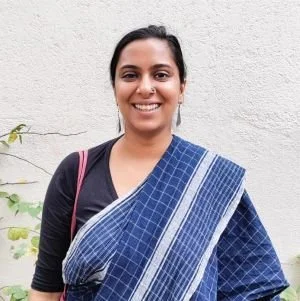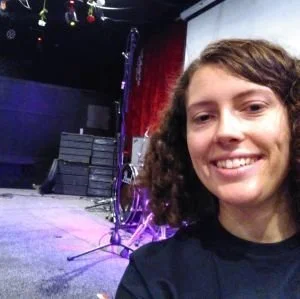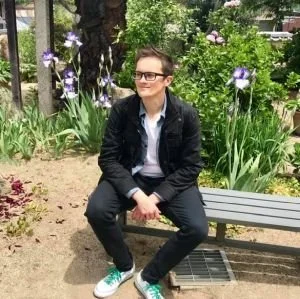2022-23 Cohort
-
![Angelos Stenimachitis]()
Angelos Stenimachitis
Business and Management
(University of Essex)
Main supervisor: Katharine Rockett
Second supervisor: Suma Athreye
Research project: The drivers of demand for intellectual property (IP) instruments in the UK
Research description: The project comprises three aims, which can be addressed through three interrelated essays:
(i) To summarise the literature on the drivers of IP demand, and the tools to analyse them. It will outline the background of the theoretical and empirical bases for estimating demand for a bundle of IP instruments, contrasted to single instruments.
(ii) To analyse in depth the demand for IP instruments – potentially as a bundle -- and use this to develop policy responses to any identified barriers to IP take-up where such take-up would be beneficial to innovativeness and growth.
(iii) Explore the dynamics through which demand for IP instruments evolves over time, to trace and explain the dynamics of holding patterns of IP, and different (perceived and reported) outcomes in terms of product market share.
LinkedIn: Angelos Stenimachitis
-
![Anthony Ede]()
Anthony Ede
Business and Management
(University of Sussex)
Main supervisor: Professor Andreas Kaeck
Second supervisor: Dr Panagiotis Tzouvanas
Research project: The Systemic Risk of Climate Change
Research description: Climate change is one of the biggest problems that faces our modern world and the most far-reaching. Climate finance, which refers to the investments that align the world with a transition to a state of reduced emissions of greenhouse gases and to mitigate against the risk of climate change, is a relatively new frontier for academics. We know from literature that the effect of climate change, combined with the goals to keep climate change to the limits set out by the Paris Agreement, have impacts at firm level and upon the financial markets. This poses great risk for the future if we do not start to act immediately. For this reason, there is need for deeper understanding of how these climate effects impact on the world of finance and the level of systemic risk they may cause. Systemic risk is the risk of financial collapse across financial systems, or the market, as opposed to the financial risk of an individual firm and was a major contributor to the economic collapse in the 2008 financial crisis.
In my review of the published literature, I have identified gaps that I wish to fill through my research. My research contributes to the current literature (Hong et al. (2020)) in answering the main thesis question: 'What is the effect of climate change on the systemic risk of firms?'. In order to qualify proof of my research question, I propose to undertake three different sub-research questions and investigations from the gaps I have found in the literature. These are:
How do climate change effects, such as variation in temperature and precipitation, affect the systemic risk of firms?
How do climate change disasters, such as droughts and wildfires, affect the systemic risk of firms?
Do rising sea levels and flooding cause increased stock market volatility?
To answer the first two questions, I will undertake systemic risk modelling procedures that account for spillover effects, such as CoVaR, MES and SRISK. These are attractive modelling techniques as we can pinpoint which firms are affected by the climate shocks and the interconnectivity between firms of these risks. The methodology to answer the third research question follows a thorough framework presented by Murfin and Spiegel (2020).
The results of my research will add to a greater understanding of the financial risk caused by climate change. I will provide a framework to build a database indicating which climate risks affect which firms and the interconnectivity of these risks and firms. This database would help in using the financial markets as a driving force for positive action in the mitigation of the effects of climate change and for policymakers to have a greater understanding of climate risk in the financial system.
Twitter: @Anthony__Ede
LinkedIn: Anthony Ede
-
![Jennifer Chernishenko]()
Jennifer Chernishenko
Business and Management
(University of Kent)
Main supervisor: Professor Ben Lowe
Second supervisor: Dr Dan Petrovici
Research project: How do you compensate? The relationship between individual differences and compensatory consumer behaviour
Research Description: People usually know who they are or want to be. However, sometimes their real self (e.g., lazy) and their ideal self (e.g., fit) are different, which leads to self-discrepancy. Under these circumstances, individuals tend to have an aversive feeling that they aim to resolve. To do so, individuals may turn to consumption-related behaviours to address the self-discrepancy, thus engaging in compensatory consumer behaviours (CCBs). These CCBs can be either helpful or harmful. As such, having a deeper understanding of what drives consumers to engage in particular types of CCB may have benefits for social marketers and consumer wellbeing.
This project aims to address this topic in two ways. First, in a food-related context, it aims to create a novel measure for examining CCB based on Mandel et al.’s (2017) five-category CCB framework. These categories – direct resolution, symbolic self-completion, dissociation, escapism, fluid compensation – describe different ways consumers may use consumption behaviours to address self-discrepancies. Second, this project aims to link individual differences with the tendency to engage in particular types of CCB. Specifically, it will explore how personality traits – Honesty-humility, Emotionality, eXtraversion, Agreeableness, Conscientiousness, Openness to experience (HEXACO; Lee & Ashton, 2004) – are linked with each type of CCB.
There are two main academic contributions from this project. First, it creates a comprehensive CCB measure for consumer researchers, and examines how this new CCB measure relates to other behaviour measures and wellbeing outcomes. Second, the project will explore how personal differences, such as personality, as well as self-related theories (e.g., self-verification theory, Swann et al., 1989; self-discrepancy theory, Higgins, 1987) and personal perception models (e.g., the Meaning Maintenance Model; Heine et al., 2006), can further aid our understanding on how CCB is linked to self-discrepancy resolutions. It will therefore not only expand on existing models and theories but also provide a deeper understanding as to how CCB and individual differences can lead to adaptive or maladaptive food-related behaviours.
Practitioners may also find the results of this project useful. For example, there may be opportunity to create tools (e.g., apps) that use self-assessment to help people healthily address a self-discrepancy. As well, social marketers may use the findings to create campaigns that resonate with those at risk (e.g., through targeted personality ads on social media). Policy makers may also find results useful to inform behavioural interventions, addressing the UN’s Sustainable Development Goal 3 (good health/wellbeing) or 12 (responsible consumption/production; UN, n.d.).
Overall, this research aims to establish a reliable measure to assess CCB behaviours and provide a deeper understanding as to how individual differences (e.g., personality traits, self-related theories) are linked with CCB. This research will focus on food-related behaviours and, therefore, contributes to our understanding of how CCB and individual differences may lead to positive or negative wellbeing outcomes when it comes to food-related behaviour. Future research may examine moderators between personality and CCB (e.g., stress, perfectionism), study specific consumption areas (e.g., diets), or further assess CCB’s impact on wellbeing (e.g., when does CCB increase/decrease wellbeing).
-
![Md Nurul Islam Sohel]()
Md Nurul Islam Sohel
Business and Management
(University of Kent)
Main supervisor: Dr Abdullah Iqbal
Second supervisor: Dr Vasileios Pappas
Research project: Sustainability Performance, Commitment, and Dual Ownership: Impact on Bank Loan Contracting
Research description: The financial system plays a critical role in shaping any economy within the contemporary, highly interconnected, globalized world. When this system operates effectively, savings are channelled toward investments that can strengthen economies and can improve living standards; when it fails, as it has in recent years, savings can contribute to the formation of asset bubbles, crises, and environmentally harmful projects, including those that exacerbate human-induced climate change (Sachs, 2014). To address such urgent concerns, the United Nations Environment Program-Finance Initiative (UNEP-FI) issued the Principles of Positive Impact Finance in 2017 and the Principles for Responsible Banking in 2019. Banks started adopting them, realizing the far-reaching impact on their survival and society at large. When individuals perceive that banks are making funding decisions that are not in the public's best interests, their confidence in them is weakened (Adams, 2021).
Hence, a deeper understanding of the dynamics underlying environmental, social, and governance (ESG) disclosure and the action of both borrowers and banks are essential in explicating the role of financial institutions in promoting the broader sustainability principles of UNEP-FI. The proposed thesis research will speak directly to this goal, supported by rich data and econometric analyses. More specifically, the thesis will utilize detailed individual bank loan-level data based on an international sample from the LPC DealScan Database, which is the best source for such data. Analyzing this dataset alongside matched data on institutional characteristics and ESG performance, I will investigate the impact of borrower and lender sustainability characteristics (commitment and performance) on features of loan contracts (pricing, nature, and the number of covenants, etc.) and how lender incentives (bank versus non-banks, dual ownership) moderate this relationship.
Since companies are investing more resources in sustainability endeavours, it is important to understand if and to what extent such investments reflect banks' preferences in lending contracts. Some banks may consider that an increasing resource towards sustainability is costly and even riskier, which opposes the fundamental goal of value maximization, while others may believe that a well-run company should pursue societal goals beyond value maximization (Hartzmark and Sussman, 2019). The ESG financing activity has increased tremendously in recent years, rising from $6 billion in 2016 to $322 billion in 2021, making it a key component of the global credit market (Kim et al., 2021). Yet, it largely remains unclear whether sustainability investments are consistent with what banks want in lending contracts. Hence, this research will examine the impact of borrower and lender sustainability characteristics (commitment and performance) on features of loan contracts (pricing, nature, and the number of covenants, etc.) and how lender incentives (bank versus non-banks, dual ownership) moderate this relationship.
Broadly the research questions are:
Do borrowers with better sustainability performance and commitment get more favourable loan contracts?
How do lenders sustainability commitments moderate the relationship between borrowers sustainability characteristics and loan features?
How do lenders incentives affect loan contracts?
LinkedIn: Md Nurul Islam Sohel
-
![Selina Rabah]()
Selina Rabah
Business and Management
(University of Kent)
Main supervisor: Dr Dan Petrovici
Second supervisor: Professor Ben Lowe
Research project: The Effectiveness of Direct and Indirect Comparative Advertising: The role of message framing, gender and processing opportunity.
Research description: Comparative advertising (CA) has become a popular strategy used by firms in the US and UK to position brands and differ from competitors (Beard, 2018). As social media ads have now become a dominant form of advertising, a recent bibliometric study (del Barrio-Garcia et al., 2020), identifies deficits in CA research in the context of social media and the need for inquiry into nations other than the USA.
This study builds on CA and nutrient content claims on food labels and packaging (Petrovici et al., 2016). It will make significant contributions by enhancing consumer behaviour knowledge about how consumers are influenced by CA messages. This research will be beneficial for communication strategies used by marketers in making health claims in the food industry. It will also contribute to tailoring prevention campaigns in the UK that aim to fight obesity, which is a growing welfare issue (NHS, 2022).
The main formats of CA are: Direct Comparative Advertising (DCA) (e.g., Pepsi vs Coca-Cola) - mentioning brand names, and Indirect Comparative Advertising (ICA) (e.g., Pepsi vs other) - brand names are not mentioned (Petrovici et al., 2019). These formats are not investigated to the same extent as CA and non-comparative advertising (NCA). Hence, the aim of this study is to further examine the effectiveness of DCA/ ICA in the context of online platforms as previous studies show mixed results (some show DCA is more effective than ICA, while others show the reverse) (del Barrio-Garcia et al. 2020). The main contexts of this study are gender and opportunity to process (e.g., exposure time), the impact of processing modes (i.e., analytical, imagery), and influence of message framing (Promotion vs. Prevention Focus) as there is limited understanding of their impact on consumer response to CA (Petrovici et al., 2019).
Lastly, this study aims to elicit factors that act as Perceived Manipulative Intent (PMI) triggers. PMI is when consumers notice that an advertisement is trying to persuade them through manipulative means (Wentzel et al., 2010). Thus, by eliciting these factors we can enhance the effectiveness of CA via examining consumer responses to these ads. Investigating PMI triggers gives insight into scepticism and brand certainty (Chang, 2007).
This research proposes a multi-methodological approach. Focus groups will be used at stage one to assist refining hypotheses and developing questionnaires for the quantitative stage. For stage two, a series of between-subjects experiments will be used. Key variables will be manipulated in the conceptual framework, whilst holding DCA/ICA formats constant.
This study aims to contribute to identified deficits through examining products that allow the investigation of consumer responses to CA, by expanding the range of outcome variables. Implications for policy makers include better understanding of strategies that help consumers make more informed decisions (Lowe et al., 2015). Thus, this study will potentially contribute towards Sustainable Development Goal 12 (Ensure Sustainable Consumption and Production Patterns). Implications for academia include testing of the underpinning theories’ applicability in CA and enhanced overall understanding of the effectiveness of CA (including genders and CA).
LinkedIn: Selina Rabah
-
![Salonie Hiriyur]()
Salonie Hiriyur
Development Studies
(University of Sussex)
Main supervisor: Deepta Chopra
Second supervisor: Becky Faith
Research project: Codifying inequalities: A feminist critique of digital labour platforms in India's domestic work sector; and exploring alternatives through worker-owned cooperatives
Research description: The labour market, in India, is characterised by informal work arrangements and informal workers. These workers are often without work and income security, social security and food security. Their lives and livelihoods are precarious and they are most often the poorest of the poor. Women's workers, within this section, are even more vulnerable due to their social position and weak bargaining power.
The emergence of digital work platforms, called the ˜'platform' economy has brought with it significant changes in worker-employer relationships. These workers, like informal workers, are not covered by labour protections. Women, in particular, have seen considerable shifts in the manner in which they seek work, engage with customers/employers, negotiate wages and other protections. My thesis seeks to examine these shifts, in India's domestic work sector, which is highly informal.
In the domestic work sector, digital platforms have brought with them systems and processes that seem to exacerbate how women experience the labour market. For example, a popular, nationally-present digital platform uses marital status as a way of matching women workers with customers, under the guise of increasing efficiency in matching workers and protecting workers from customer refusal and harassment. This goes to show that a woman's social indicators - age, caste, class, marital status - play a role in the work she is able to engage with. While some studies have begun to understand how these algorithmic biases affect women, there is a gap in our knowledge on the means and extent of this affect, as well as on worker impact.
Furthermore, in the informal work sector, the cooperative model has traditionally shown some success in both organising workers and affording them decent work, decision making power and sustaining livelihoods. The Self-Employed Women's Association (SEWA) Cooperative Federation is an organisation working with women's cooperatives, with the goal of creating and sustaining grassroots owned and led cooperatives. The platform economy has pushed these cooperatives, as well as brought in ideas for new cooperatives, that include platforms in their design. In theory, a worker-owned digital platform would eliminate discriminatory practices, while optimising the use of technologies in this new economy. The viability and sustainability of such platform cooperatives, particularly those owned by women, is yet to be fully determined.
The two main research questions, which I seek to examine are: How do digital platforms (in the domestic work sector) inherently embed or codify gendered power-dynamics and hierarchies, and how do workers adapt to or negotiate with these codifications, vis-a-vis prevailing socio-cultural norms?
Are worker-owned platforms, such as cooperatives, a viable and sustainable means of enmeshing tech-enabled solutions with democratic governance?
The main research methodology will be qualitative, including various modalities of data collection - key informant interviews, case studies and a critical examination of platform policies. Through these, I seek to centre the voices of women workers. I will also study SEWA Homecare, a cooperative of domestic workers in the state of Gujarat, that has experimented with traditional platforms and also begun designing its own plan for a cooperative platform.
Digital platforms hold immense emancipatory potential in terms of promoting the economic participation of women, formalizing and improving conditions in the informal economy, and creating new opportunities in an increasingly stagnant economy that can provide fewer and fewer jobs. However, whether this will happen will be determined by the ongoing struggle to define how the design and applications of digital platforms will evolve in the years to come. The key stake that women workers around the world have in the struggle over this technology's future demands that research quickly draw out the specificities of women's experiences.
Twitter: @SalonieM
LinkedIn: Salonie Muralidhara Hiriyur
-
![Elena Faieta]()
Elena Faieta
Economics
(University of Essex)
Main supervisor: Dr. Michel Serafinelli
Second supervisor: Professor Marco Francesconi
Research project: Rural Labour Markets: Local Multipliers and Agglomeration Spillovers
Research description: Twenty-five percent of the population in developed countries lives in rural areas. However, more focus appears to have been put on cities in social science and, while recent research documents large differences in employment growth across rural areas, the drivers of labour market dynamics in such areas are still unclear.
My research proposal aims to study local multipliers and agglomeration spillovers in rural labour markets, using data from Italy.
Local multipliers can be defined as the additional economic benefit that accrue to the local economy in the presence of a particular type of economic activity. For example, if a new job is created in some area, the local economy benefits from an increase in both the spending of the firm and that of workers, resulting in benefits of other local industries as well. We call this the “multiplier effect”.
Agglomeration spillovers are defined as the benefits that come when firms and people locate near each other in a given geographic area. In the presence of agglomeration spillovers, rural areas can share intermediate-input producers and labour pools, with a resulting decrease in cost of productions and relocation costs. Also, thanks to shared knowledge and improved skills matching, firms experience higher innovation with lower costs and higher profits.
In the first strand of my research, I will study local multiplier effects in rural labour market exploiting demand shocks for the manufacturing of food and beverage industry.
In the second strand, I will study agglomeration spillovers. My research design exploits shocks to Small and Medium-sized Enterprises (SMEs) and artisanal workshops. The standard approach, used in the literature so far, exploits data variation caused by “firm entry” in the local labour market to study agglomeration effect. I will instead use an inverse approach that exploits “firm exit” variation, which I believe is novel. This allows to explore the extent to which de-agglomeration spillovers affect the labour market and lead to: decrease in productivity and increase in costs at local level.
In the end, I plan to develop a theoretical model in which demand shocks at aggregate level drive local industry dynamics. In this model, labour market evolutions in rural areas then result from these industry-level changes due to agglomeration spillovers (and therefore changes in productivity) and local multipliers. This model-based approach can be used, for example, to analyse how the government’s infrastructure investments and subsides to firms affect industry-level changes and job growth across rural areas.
The findings will inform governments and policy makers about: (1) drivers of labour market dynamics in peripheral areas; and (2) effectiveness of public infrastructure investments and subsides to firms in reducing regional inequalities and spurring employment growth in rural areas.
Twitter: @faieta_elena
LinkedIn: Elena Faieta
-
![Enya Turrini]()
Enya Turrini
Economics
(Royal Holloway, University of London)
Main supervisor: Melanie Lührmann
Second supervisor: Arnaud Chevalier
Research project: The impact of parental and local socio-economic shocks in childhood on young adults’ expectations and perceived social norms
Research description: Families’ socio-economic status, parental education and local economic conditions play a critical role in child development and are formative factors for their future education and life choices. This research agenda aims to offer a broader perspective on the effect of childhood circumstances and focus on their role in the formation of preferences, future beliefs (subjective expectations), personality and prosocial behaviour. All of these have been shown to significantly affect life choices.
In the first part, I investigate whether family shocks – i.e. parental unemployment – experienced during childhood unfold long-run impacts on the personality and future beliefs of young adults. In the second part, I explore the influence of changes in local public funding for youth services such as youth clubs and sports facilities – experienced as a result of the UK austerity policy or from the allocation of National lottery profits to local sports clubs, social and cultural venues – on personality, socio-emotional development and future beliefs.
These projects are based on the Millennium Cohort Study, a longitudinal panel of about 19,000 children born in the UK at the turn of the Millennium. These children, and their families, have been surveyed since birth, which offers the opportunity to precisely measure life events, including shocks that might be specific to the family (e.g. parental unemployment) or to the municipality (e.g. local government funding shocks). I will focus on respondents’ subjective expectations about attending higher education, employment and earnings at age 30 which were elicited at age 17, just before the end of compulsory schooling, in a module of MSC developed by – among others - my envisaged supervisors Profs Chevalier and Luhrmann. In addition, I will exploit measures of personality at age 17, and socio-emotional development which has been elicited throughout childhood.
The millennium cohort will allow me to investigate three potential mechanisms – the formation of future beliefs, personality and socio-emotional development - which may be affected by family circumstances and shocks in different stages of childhood.
Third, I explore whether family background is related to ethical attitudes and social behaviour, such as pro-social actions, redistributive allocation choices, cooperation and cheating. We plan to run quasi-experiments to assess how family background may affect perceived social norms. There is limited evidence that this is the case. Moreover, we will assess the willingness to deviate from the perceived norm. I thus want to assess whether perceived social norms and non-adherence to the norm are correlated with family circumstances, as this could contribute to the social gap in expectations.
For example, the education expectation gap could be driven by differences in the perceived social norm regarding attending higher education, and by socio-economic differences in deviating from perceived social norms. For this part of my PhD, I will develop a survey and use a series of games typically used in economics to assess pro-social behaviour and social norms. Profs Feri and Luhrmann who have conducted field and lab experiments will supervise this.
LinkedIn: Enya Turrini
Instagram: enya1912
-
![Jack Keeble]()
Jack Keeble
Economics
(University of East Anglia)
Main supervisor: Amrish Patel
Second supervisor: Oana Borcan
Research project: First Steps to Independence: Evaluating a Behaviourally Informed Travel Training Programme
Research description: Today’s children are growing up in tough times. Funding for children’s services is under serious pressure, mental health problems are increasingly common, and the COVID pandemic has disrupted childhoods across the UK. One group of children particularly affected by such adverse climates are those with special educational needs and disabilities (SEND). Norfolk County Council (NCC) are committed to ensuring that all children and young people with SEND reach their potential and thrive. NCC is working together with The University of East Anglia (UEA) to continue to improve and evaluate a programme for SEND children which aims to equip them with a skill fundamental to teenage and adult life: independent travel skills. Travelling independently unlocks the door to social activities, employment, education, or volunteering opportunities, helps to combat social isolation, and ultimately supports individuals to achieve and maintain an economically active and fulfilling life.
Current home-to-school transport provision can be detrimental to the environment and contribute to budget pressures for local authorities. Where appropriate, if children and young people are able to switch to greener, healthier, and more sustainable modes of transport (e.g., public transport, cycling or walking), there could be benefits to all. This project, the first of its kind, will evaluate whether behavioural science-informed independent travel training can support these goals.
The overall aim of this project is to evaluate the impact of a behavioural science-informed independent travel training programme (for SEND children, 11+ years old) in four dimensions:
Progress towards independent travel.
School attendance, behaviour, and attainment.
Non-cognitive skills, behavioural and psychological measures (e.g., confidence, self-esteem, quality of life, adult skill development, risk-aversion).
Broader impacts (e.g., parental burden, child-parent relationship quality, Local Authority expenditure).
LinkedIn: Jack Keeble
Instagram: jack.e.keeble
-
![Nicholas Green]()
Nicholas Green
Economics
(University of Surrey)
Main supervisor: Valentina Corradi
Second supervisor: João Santos Silva
Research project: Preferential Trade Agreements and UK Industries of the Future
Research description: Many modern industries engage in international trade, and hence their success relies on trade agreements with partnering nations. In 2017, the UK government's industrial strategy white paper emphasised the “industries of the future” (IOTF), such as artificial intelligence, big data, clean energy, and self-driving vehicles, i.e., industries having critical strategic value to the UK economy.
The heterogeneous nature of industries means that preferential trade agreements (PTAs) can affect industries very differently. To negotiate tailored PTAs to best nurture industries, I must quantify the effects of trade provisions on industry growth. I aim at devising computationally feasible estimators, extending, e.g., Larch et al. (2019) to industry disaggregated data (e.g., Chen and Novy 2011) to study and identify the effects of individual PTA provisions on bilateral trade flows in specific industries, emphasising the IOTF.
Recent research has tried to move beyond estimating the overall impact of PTAs and establish the relative importance of individual provisions in determining an agreement's overall impact (e.g., Kohl, Brakman, and Garretsen, 2016, Mulabdic, Osnago, and Ruta, 2017, Dhingra, Freeman, and Mavroeidi, 2018).
Estimating the impact of individual provisions within PTAs has many challenges. Existing research has struggled with overfitting and severe multicollinearity problems when estimating the effects of these provisions on trade flows because many provisions jointly appear in several trade deals, thus creating high collinearity among them. Mattoo et al. (2017) use the number of provisions in an agreement to measure its "depth". Instead, Dhingra et al. (2018) group provisions in relatively small groups of bundles. Both approaches to overcome collinearity come at the cost of losing important information about the contribution of specific provisions.
Firstly, I will merge the big data/machine learning approach of my supervisors, Corradi and Santos Silva, in Breinlich et al. (2021), to the sectorial disaggregated approach of Chen and Novy (2011). I will build on the techniques co-developed by my supervisors in Breinlich et al. (2021), who use the complete set of individual provisions and machine learning techniques, such as LASSO (Least Absolute Shrinkage and Selection Operator), to choose the subset that affects bilateral trade adaptively.
I will apply these methods to a rich dataset of PTA provisions recently made available by the World Bank (Mattoo, Rocha and Ruta, 2020). This dataset provides evidence on the content of trade agreements both at the extensive margin (number of policy areas covered) and the intensive margin (commitments within an area). These methods will allow me to propose novel data-driven methods for selecting the most important provisions and quantifying their impact on trade flows in the IOTF.
My research will also contribute to estimating the gravity equation with four-layer panel data, i.e., in the presence of export and import countries, industries, and time. To consider the role of time and country-dependent time effect would not be trivial. Importantly, my dissertation will have an impact outside of academia. My research will provide novel insights into how trade deals may impact the IOTF and their growth, which is crucial information for trade negotiations.
LinkedIn: Nicholas Green
Instagram: Nicktenoshi
Facebook: Nicholas Green
-
![Omar Hussein]()
Omar Hussein
Economics
(University of Essex)
Main supervisor: Carlos Carrillo-Tudela
Second supervisor: Xiaoyu Xia
Research project: Social networks and match quality: a search approach
Research description: Individuals often rely on their informal personal contacts - social networks - to find employment or improve their labour market prospects. The general direction of the theoretical literature predicts a positive effect of networks on the quality of the match between workers and firms, and thus wages and job stability, because they reduce information and search frictions. However, the empirical literature provides mixed and heterogenous results.
My objective is to explore alternative channels of transmission from networks to match quality. I will study the role of networks in wage bargaining as a determinant of the worker’s outside option, and as a social risk sharing mechanism against the incidence of unemployment. These two aspects could allow us to explain the observed differentials of the effect of networks on wages and turnover by skill level and occupation.
To address these issues, I will follow a structural estimation approach to identify and quantify the economic mechanisms behind the relationship. For the theoretical part, I will formulate three models incorporating networks into a directed search framework, that includes wage renegotiation and learning about match quality. Then, I will empirically test the predictions of these models using individual level data from the UK and Germany.
This project is situated within the strand of theoretical literature on social networks in search models, and the empirical literature that evaluates them using large individual level datasets. From a policy point of view, this project can be used when designing programs for employment agencies to fill the information gap for those with limited access to job referrals.
Twitter: @OmarMohHussein
LinkedIn: Omar Hussein
-
![Paulo Morais]()
Paulo Morais
Economics
(University of Essex)
Main supervisor: Dr Paul Fisher
Second supervisor: Dr Ben Etheridge
Research project: Winter Is Coming: Can a Labelled Cash Transfer Increase Household Fuel Spending and Well-being? / How does temperature affect labour productivity? Evidence From the UKHLS Fieldwork
Research description: My PhD consists of two chapters.
In my first chapter, I study the Winter Fuel Payment (WFP) an annual cash transfer paid to all UK individuals above the female state pension age. I examine whether the label of this transfer increases households' fuel spending and, consequently, improves health status and home temperature. Using data from the UK Household Longitudinal Survey (2009–2017) and implementing a Multi-Cutoff Regression Discontinuity Design, I find that WFP-eligible households increase their annual fuel spending by 6.4% compared to the non-ineligible group. This effect is particularity driven by unhealthy individuals and individuals not on benefits, who have to actively apply for the payment. Linkage with external temperature data also shows that the effect is more pronounced during milder winter conditions when heating is more discretionary, as indicated by significant increases in home temperature.
In my second chapter, I study how weather affects individual-level labour productivity in a high-income, service-sector context. Using detailed panel data on UKHLS survey interviewers linked to local weather station data, I examine how variation in weather conditions influences their work output. My findings show that higher temperatures significantly reduce interviewer productivity: on hotter days, interviewers complete fewer interviews, work shorter hours, and collect more lower-quality responses. The effects are stronger when accounting for humidity, suggesting that both heat and moisture contribute to productivity losses. Importantly, there is no evidence of work reallocation as output does not increase on a colder day followed by a hot day. Additional analysis using temperature shocks—deviations from historical norms—shows similar, though smaller, negative effects, highlighting that absolute temperatures, rather than weather shocks, are the primary driver of these findings.
-
![Deb Buttery]()
Deb Buttery
Education
(University of Reading)
Main supervisor: Professor Suzanne Graham
Second supervisor: Dr Naomi Flynn
Research project: The use of picturebooks in the languages classroom: impact on linguistic and non-linguistic outcomes.
Research description: My thesis will explore the issue of how to nurture positive attitudes to language learning among primary-aged learners of French, as well as improving their language proficiency. Learning a foreign or second language (L2) in school has recognised benefits for learners’ personal, cognitive and social development (British Academy, 2019), with the potential to enhance creativity, empathy and mental flexibility (Woll & Wei, 2019). Yet with take up at GCSE level and above declining (Collen, 2021), there are long-standing challenges for Modern Foreign Languages (MFL) teaching in England, from primary school upwards. There is an increasing body of research espousing the use of picturebooks in the foreign language classroom on both a theoretical (Mourão, 2016; Wolanin, 2021) and empirical basis (Birketveit & Rimmereide, 2017; Wang & Lin, 2019) but this research is overwhelmingly from non-Anglophone countries. Few if any such studies have been conducted in MFL classrooms in England. In view of the particular motivational and environmental factors that pertain in Anglophone settings such as England this is an important gap to fill. My research therefore seeks to examine whether MFL picturebooks can be used to support linguistic and non-linguistic outcomes in the classroom and, as such, promote better linguistic progress, emotional engagement, creativity and motivation in pupils.
A quasi-experimental, mixed methods study will be undertaken to address this research gap, working with English primary schools that have three classes of Year 5 mixed-ability pupils. One class (the experimental class) will undertake a project based on a picturebook; the active control class will undertake a project relating to French culture (i.e. not literature-related but controlled to ensure the same linguistic level); the control class will follow a textbook without extra intervention. Learners’ language proficiency, attitudes, motivation, creativity and empathy will be assessed before, during and after the intervention via oral assessments, questionnaires and focus groups. This range of data will provide novel insights into the role that literature can play in early language learning in an Anglophone setting. In so doing, it will provide a much-needed evidence base for tackling issues of low motivation for language learning across all educational phases.
Facebook: deb.clegg.5
-
![Libby Hamling]()
Libby Hamling
Education
(University of East Anglia)
Main supervisor: Dr Esther Priyadharshini
Second supervisor: Dr Spyros Themelis
Research project: Redefining Allyship: transforming race relations in higher education through a post-qualitative inquiry
Research description: This project will explore perceptions of 'allyship' among a self-selected group of minority and non-minority students in two UK Higher Education institutions. "Allyship" is a concept used in social justice activist circles to describe actions of privileged members to support or advance the interests of more marginalised groups/members. It can apply both in society at large, and within particular institutional contexts, such as universities or workplaces. Recently, where ‘allyship’ has been studied, the focus has been on explaining the motivations and controversies around White allyship. While self-identified ‘allies’ are seen as a potential lever for transforming social relations, there is little empirical research on how allyship, its role and functions work within institutional contexts.
The research will address this gap by exploring the diverse forms and outcomes of allyship among students, and offer insights into how institutions may recognise, and support the socially transformative actions of allies. To shed light on the manner in which the discrimination faced by minority groups is structural, the study will draw on the theoretical framework of Critical Race Theory which is featured in Higher Education research when presenting how discrimination may exist in Higher Education in visible and hidden ways. Scholars have revealed how institutions’ moves for greater ‘inclusion’, ‘integration’ or ‘diversity’, can paradoxically maintain racial hierarchy and inequality. Critical Race Theory's insistence on a sustained critical perspective is thus valuable to this project as both discrimination and anti-racist solutions need to be analysed in their functioning within institutional contexts. The study will use a critical post-qualitative methodology in the form of workshops that use creative methods, such as collaging/body-mapping, in two different Higher Education institiuions to generate detailed data to understand different definitions and constructions of allyship by students. Careful use of these creative methods has been shown to open conversations around sensitive and hard-to-articulate topics.
The post-qualitative approach to fieldwork seeks to include the more-than-human elements in institutional contexts, such as events, digital spaces, policies, objects, and ‘all the things in between’. This kind of ‘deep empiricism’ is claimed to facilitate enquiry into social or systemic justice by attending to the assemblage and functioning of institutions. This can facilitate an understanding of complex issues from typically underexplored perspectives. Findings from these creative workshops, including a policy response framework for transformative change will be fed back to students and the institutions through the production and distribution of a zine output. This is to acknowledge students as producers of knowledge and intended to generate dialogue towards transformative action.
Twitter: @LibbyAHamling
LinkedIn: Libby Hamling
-
![Sussex logo]()
Marcela Gola Boutros
Education
(University of Sussex)
Main supervisor: Dr Linda Morrice
Second supervisor: Dr Tamsin Hinton-Smith
Research project: Exploring the experiences of forcibly displaced people in higher education: a case study on Brazil
Research description: Only 3% of refugees worldwide have access to higher education, whilst the global access rate for the wider population is 37%. In 2019, the United Nations High Commissioner for Refugees (UNHCR) released its latest education strategy, with a target known as “15by30”, which aims to achieve at least 15% enrolment of refugees in tertiary education by 2030. In parallel, the 2030 Agenda for Sustainable Development set the goal to “ensure inclusive and equitable quality education and promote lifelong learning opportunities for all” (United Nations, 2015). Within this context, Brazil, the largest and most populated country in Latin America, has seen a drastic rise in the number of asylum requests in the last decade.
From 2018 to 2019, the number of people recognised as refugees by the National Committee for Refugees grew by more than 2,000% (MJSP & OBMigra, 2021). This increase was triggered by one of the worst humanitarian crises in modern history, which prompted over three million citizens of Venezuela to flee their country. Of these, almost 158,000 sought refuge in Brazil (UNHCR, 2021). In terms of higher education, Brazil has one of the lowest tertiary attainment rates among OECD countries and, therefore, accessing universities represents a challenge to its own nationals (OECD, 2021). Despite the economic, political and educational obstacles, some Brazilian universities have engaged in initiatives to facilitate the access of displaced persons to higher education. Given the impact of the latest migratory events in Brazil and that many displaced persons come from educated or professional backgrounds, this qualitative case study will explore the experiences of displaced students when accessing and navigating higher education in this country.
Empirical research on this topic is scarce, but much needed in comprehending the role of universities in the context of displacement, and how they can better support refugee students. This study will rely on focus group discussions, policy analysis and analysis of entry data as its main research methods. This methodology will contribute to a greater understanding of the individual and contextual circumstances that determine the ability of refugees to access higher education in Brazil, and what sorts of additional support are needed to enhance their academic experience. Such comprehension is crucial to develop new enhanced strategies to achieve both SDG4 and UNHCR 15 by 30 target. Additionally, analysing the Brazilian case is key to understanding displacement dynamics in Latin America and tackling the challenge that it represents in this region. This research will generate important and necessary empirical data that will potentially help universities, governments and international organisations to develop streamlined evidence-based policies which will allow a greater number of refugees to access universities in Brazil, and in the whole of Latin America, and to improve their academic experiences through the provision of enhanced support.
LinkedIn: Marcela Gola Boutros
Instagram: marcelaboutros
-
![Grania Power]()
Grania Power
Human Geography
(University of East Anglia)
Main supervisor: Rachel Carmenta
Second supervisor: Matthew Jones
Research project: Following the light: using 'brightspots' to avoid future Amazonian fires
Research description: With the support of the SeNSS-ARIES Doctoral Training Programme, the project Following the light: using ˜brightspots to prevent future Amazonian fires takes a multidisciplinary approach across geography, development studies, environmental science, and anthropology. Combining GIS surveying and ethnographic research methods, it will map, and later zoom-in to take a closer look on the ground, at areas within the Brazilian Amazon rainforest which that have fared better than our current models could have anticipated during wildfire events. The project will seek to identify ecological and eco-social-cultural factors that can explain the relative resilience and success of these 'brightspots' during wildfire events, applying the 'brightspot' concept, which was developed by Joshua Cinner et. al in 2016 for modeling coral reef resilience, to the Amazon rainforest for the first time.
Twitter: @GraniaPower
LinkedIn: grania-power-9462b2bb
-
![Jane Bennett]()
Jane Bennett
Human Geography
(University of Reading)
Main supervisor: Dr Carolina Vasilikou
Second supervisor: Dr Dragana Nikolic
Research project: How can autistic women's complex embodied experience of the built environment be codified through a perceptual model of wayfinding?
Research description: According to Autistica, the UKs leading autism focussed charity and my research collaborator for this PhD, 8 in 10 autistic people have issues experiencing the sensory world and 9 in 10 feel they experience it differently (Cusack, 2016). By 2030 Autistica aim to make public spaces more accessible to autistic people (Autistica.org, 2021). Autism can cause sensory processing of the external environment to be heightened, resulting in experiences that can have negative impacts on the individual. This has been described as making individuals feel profoundly vulnerable, with their daily life intruded upon by unpleasant sensory stimuli (Belek, 2018). By engaging with autistic women, I am acknowledging and validating the complex, nuanced, and individual (Cachia, 2012) experiences of this minority group, as well as engaging with disability theory in the context of feminist psycho-geography. Siebers (2013) argues that the embodied experiences of disabled people are more complex than the ideology of ability allows. This is illustrated by both a lack of research a autistic women and by their public, or nondomestic experiences (Franck, Paxson, 1989). Therefore, the neurodiverse embodied experience of public spaces for autistic women is vital to address and I will do this through the development of the multisensory perceptual model of wayfinding and codification of data.
My presumption is that urban landscapes may negatively impact autistic women's mental health, leaving them vulnerable to isolation and exclusion. In response, my research asks, how can autistic women's complex embodied experience of the built environment be codified through a perceptual model of wayfinding? This will directly address systemic injustices linked to feminism, 'ableism' and architecture and intricately links to theories on emergent geographies of dis/ability (Hall, Wilton, 2016). My hybrid theoretical framework focuses on action research and phenomenology, exploring and evaluating physical and psychological experience in conjunction with the research demographic.
Action research reflects the ethos of Autistica with the research participant at the centre, empowering research participants to examine their own experiences (Kwan 2002). This contrasts with being examined through an ethnographic lens. If public space has multiple identities reflecting diverse human experience (Massey, 2005), the autistic female perception has been excluded in the discussion of the spatial turn™ and by proxy excluded from the theoretical framework of women moving in public space.
My hybrid methodology is divided into three key areas:
Initial quantitative data collection, through surveys and questionnaires.
Ethnographic walks. Physical data captured via wearable technologies and analysed in conjunction with modified emotional cartographies.
Semi-structured elicitation interviews utilise data captured from the ethnographic locomotion to explore the impact of the sensory ecology on the individual.
My perceptual model will provide novel data on the impact of these journeys of necessity on autistic women, thus, elucidating the autistic sensory experience. How as architects, designers and public planners might we co-construct as Massey (2005) states, with a minority group, to develop responsive and accommodating environments, empowering autistic women's wayfinding and therefore widening participation in the design of placemaking?
Twitter: @JaneEBennett
LinkedIn: Jane Elizabeth Bennett
Instagram: JaneEBennett
-
![Kirsten Rowland]()
Kirsten Rowland
Human Geography
(Royal Holloway, University of London)
Main supervisor: Sasha Engelmann
Second supervisor: Phil Crang
Research project: Furthering diversity agendas in grassroots cultural production: a feminist geographical inquiry
Research description: This doctoral research project focusses on exploring practices of diversity and inclusivity within the context of feminist, grassroots cultural production. It is clear that there is currently considerable confusion over the parameters and conceptualisation of diversity agendas throughout society, despite increasing discussions in most sectors. Feminism has often been at the forefront of these debates (#MeToo, the gender pay gap, gender identity, etc.). Recent literature has also highlighted the importance of grassroots activism in furthering diversity agendas. This research spotlights the grassroots, feminist, punk organization LOUD WOMEN, a community formed to promote and celebrate diversity in the underground music scene. Through its founding principle and ongoing practice of inclusivity in all aspects of the community, LOUD WOMEN has expanded the most common manifestation of a diversity agenda, ‘diversity of participation’, into ‘diversity of being’. Drawing on my experiences of working with LOUD WOMEN and participating in the wider music scene, I propose two research strands for this project. First, I intend to conduct a feminist cooperative inquiry in partnership with LOUD WOMEN, culminating in the production of a zine detailing the history and import of the LOUD WOMEN community as told by its members. This will be complimented by ethnographic and interview-based research within the organization. Second, I will contextualize LOUD WOMEN through critical policy analysis and further interviews engaging with a variety of stakeholders in the UK music sector (Music Venue Trust, the Arts Council, Women in CTRL etc.). Through so doing this project will further understandings of diversity agendas in the context of cultural production, particularly in a feminist, grassroots setting. It will also engage with feminist actors, both in the context of diversity agendas and the methodology of feminist cooperative inquiry. By marrying feminist geographies with cooperative feminist methodology, this project will make a valuable contribution to literature concerning diversity agendas and feminist cultural production.
LinkedIn: Kirsten Rowland
-
![Reading logo]()
Jiayin Li
Linguistics
(University of Reading)
Main supervisor: Dr Fang Liu
Second supervisor: Dr Ian Cunnings
Research project: Speech-in-noise Perception in Autism Spectrum Disorder: Electrophysiological and Behavioural Evidence
Research description: In daily life, our conversation is often overlapped by multiple speakers and/or environmental sounds. These distracting noises make it effortful for listeners to recognise the target speech. This “cocktail party problem” has fascinated researchers for decades, and yet remains unsolved. Given autistic individuals’ atypical profiles in auditory, music, and language processing and their difficulties with speech-in-noise perception, this project will investigate how bottom-up acoustic-phonetic factors and top-down linguistic-cognitive factors impact speech perception in different types of noises (speech, non-speech, and music) in autism using both behavioural and EEG methods. The findings will reveal whether and to what extent bottom-up and/or top-down processes influence speech-in-noise perception in autism and in typical development, contributing to the theoretical and practical understanding of the “cocktail party problem”.
Twitter: @jiayin18127869
LinkedIn: Jiayin Li
-
![Mirjana Jeremic]()
Mirjana Jeremic
Linguistics
(University of Reading)
Main supervisor: Dr Emma Pagnamenta
Second supervisor: Prof Vesna Stojanovic
Research project: Shared Book Reading Intervention with young children with Down Syndrome: working with parents to enhance parent-child interaction and child language and communication outcomes
Research description: Down Syndrome is the most common genetic cause of learning disability (Chapman and Hesketh 2000) affecting approximately 1 in 700 live births (Martin et al. 2009). One of the biggest challenges for individuals with Down Syndrome is language (Abbeduto et al. 2007), a well-known predictor of psychosocial and academic outcomes (Snowling et al. 2011). It is therefore crucial, that children with Down Syndrome are supported from an early age to develop their language skills, to optimise communication and academic and well-being outcomes. There are few evidence-based intervention available for children with Down Syndrome that target language development at early age (Seager et al. 2021; Toole et al. 2018).
Shared book reading interventions build upon a natural sociocultural activity by using book-sharing strategies, prompts and questioning. They improve language and pre-literacy outcomes for typically developing and ‘at-risk’ children (Aram et al. 2013, Dowdall et al. 2020, Huebner & Payne 2010, Law et al. 2018, Vally et al. 2016). Shared book reading is regarded as an intervention that can be easily implemented (Quinn et al. 2019). To date, few UK studies have been conducted and little is known about the effectiveness of shared book reading for children with learning disabilities, including children with Down Syndrome (Law et al. 2018, Towson et al. 2017).
Aim: Together with parents, we aim to co-create and test a shared book reading intervention specifically tailored to the unique profile that children with Down Syndrome share that supports their development of language and communication.
Who can take part: two-to-four-year-old children with Down Syndrome and their families.
Study 1: Examining shared book reading with parents and children with Down Syndrome Children with Down Syndrome will be observed in a shared book reading activity with their parents. These interactions will be compared with children without Down Syndrome, matched for chronological age and language ability to examine the unique ways parents and children with Down Syndrome communicate and interact during shared book reading.
Study 2: Co-creating the intervention Parents will help co-create a shared book reading intervention for two-to-four-year old children with Down Syndrome and an intervention manual will be developed.
Study 3: Testing the intervention In the final study, after six weeks baseline observation period, a 12-week training of the parent-led programme will be implemented. Families who have not participated in the previous studies will test out the intervention created in Study 2.
Collaborators: This project is conducted in collaboration with Down Syndrome Education International, a large charity supporting families around the world to improve early intervention and education for children with Down syndrome. Collaborators include Dr Emma Pagnamenta and Professor Vesna Stojanovik (School of Psychology and Clinical Language Sciences, University of Reading), Dr Kelly Burgoyne (University of Manchester) and Professor Sue Buckley (Down Syndrome Education International).
Contact: Mirjana Jeremic (m.jeremic@pgr.reading.ac.uk), or Dr Emma Pagnamenta (e.pagnamenta@reading.ac.uk)
-
![Fadhilah Primandari]()
Fadhilah Primandari
Politics and International Relations
(University of Essex)
Main supervisor: Professor Moya Lloyd
Second supervisor: Dr Sarah Shair-Rosenfield
Research project: Consolidating Democracy or Men's Rule: A Feminist Discursive Institutionalist Approach to Democratic Consolidation
Research description: This project seeks to construct a gendered theory of democratic consolidation to investigate the exclusion of women from politics in consolidated democracies. Using a feminist discursive institutionalist approach, it argues that democratic consolidation is more than the unlikelihood of democracy to break down; it is a process through which gendered democratic ideas, rules and practices are preserved. More specifically, this study theorises that masculine and exclusionary understandings of democratic politics during a democracy’s early periods create exclusionary political paths and restrict feminist changes in the long-term, while more egalitarian conceptions and democratic habituation better enable such progress. This theory will be demonstrated through an interpretive process tracing (IPT) of the gendered democratic trajectories in Ireland and Sweden. This project has the potential to not only offer a new understanding of democratic consolidation but also contribute to the ongoing efforts to strengthen women’s political representation by specifying how exclusionary political habits hinder future political opportunities for women and how we may undo them.
Twitter: @dhilaprimandari
LinkedIn: fadhilah-fitri-primandari
-
![Sussex logo]()
Michael Harvey
Politics and International Relations
(University of Sussex)
Main supervisor: Sam Knafo
Second supervisor: Julian Germann
Research project: The Bank of England and Inflation Politics in 'The Great Moderation', 1992-2007
Research description: Inflation has re-entered popular discourse as an urgent problem in the wake of covid-19. Fear of inflation was last a pressing popular and academic concern when the effects of the 1970s oil-crisis and 'stagflation' disrupted the political order in the Global North, ending the post-war Keynesian settlement. But with the institution of a raft of new globally influential techniques for tackling inflation in the 1990s it was thought to have been adroitly 'tamed', initiating a halcyon period known as the 'Great Moderation' (1992-2007). Uncontroversial for almost thirty years, recent events and academic work have exposed cracks in this narrative. Though this work suggests that central banking policies are less politically neutral (Cooper, 2017), and more improvisational than its technocratic rhetoric would admit (Tooze, 2018), there remains much that we do not know about the 'stability' of the Great Moderation, how it was made, and what was intended by it. My project closes the gap by systematically re-interrogating the making of the notional policy successes of price stability. Drawing on elite interviews and new archival research, it asks: how was the low inflation regime conceived, developed, and implemented by the Bank of England between 1992 and 2007? And how, if at all, were eventual social and economic consequences and path-dependencies integrated into this process?
-
![Nico Edwards]()
Nico Edwards
Politics and International Relations
(University of Sussex)
Main supervisor: Prof Anna Stavrianakis
Second supervisor: Dr Andrea Brock
Research project: War by Biodegradable Means? An Assessment of the British Military Sector’s Green Turn
Research description: Although the links between military action and anthropogenic climate change are gaining increasing attention, military industries globally are growing at a steady rate. 2021 saw the highest level of total world military expenditure in global history, and even as the global economy shrank during 2020, global arms sales increased. In the UK, the 2021 launch of a sustainability agenda for the British Armed Forces coincided with the government’s announcement of “the biggest programme of investment in defence since the end of the Cold War.” While researching lead-free bullets, lithium-ion battery tanks and solar-powered drones, the UK is simultaneously increasing its military spending over the next four years by £24 billion – looking to lift the defence budget to 2,5% of GDP by 2030 – emphasising the modernisation and expansion of military equipment to accompany plans for British global leadership in navy, air and other capabilities. Notably, the programme adds to a military-industrial sector with an existing annual carbon footprint of 11 million tonnes: the equivalent of more than 60 individual countries the size of Zambia. Campaigners critique this expansion as military greenwashing – a rallying-point voiced especially loudly during public protests around COP26 in Glasgow 2021 – raising questions around the drivers behind and justifications for the British military sector’s leading role “at the forefront of a new and growing green military agenda.” Responding to the new agenda, this research project asks: how, why and with what consequences is the UK military sector positioning itself at the forefront of the green transition?
Despite their significance for the study of war, security and related politics, the convergences between militarisation and climate change have received only limited attention within International Relations, related disciplines or the (social) sciences more generally. This includes a lack of direct engagements with the military sustainability agendas – which I call green militarism – currently emerging across the global north, from Germany and Sweden to the US, the EU and NATO. Drawing on and extending extant theoretical literatures on liberal militarism, climate (in)justice, (geo)political ecology and climate security, and combining policy analysis with in-depth interviews, the project aims to develop a novel conceptualisation of the relationship between militarism (understood as the influence of military actors, logics and interests on political, economic, social and cultural life) and climate justice. Focusing on the UK as a global leader in military sustainability, it will offer the first empirical account of the drivers and implications of 'greening' Britain’s military sector (the Ministry of Defence, armed forces, defence industry, and associated policies, strategies, and research and development) – exploring how the introduction of environmental sustainability into military strategy, capacity and social ethos might altogether transform the meaning of sustainability and military action. The project includes Scientists for Global Responsibility as non-academic collaborative partner, enhancing both feasibility and potential for public impact. As such, it seeks to strengthen the bonds between UK-based climate and peace researchers and movements, offering scholarly research to serve as a springboard for impact on key policy problems around the climate crisis and its military dimensions.
Twitter: @nicosananes
LinkedIn: Nico Edwards
Facebook: Nico Edwards
Instagram: nicosananes
-
![Sonali Campion]()
Sonali Campion
Politics and International Relations
(University of East Anglia)
Main supervisor: Professor Toby James
Second supervisor: Dr Anuradha Sajjanhar
Research project: Delivering Democracy? An Analysis of Election Management Body Capacity in Four Countries
Research description: It is widely recognised that regular, competitive elections are an essential component of democracy, yet many elections fail to meet international standards or the expectations of citizens. This is not always due to malpractice by political actors or the irregular pursuit of a particular outcome by election officials. While failures in electoral administration are often overlooked as a factor, capacity limitations on the part of election management bodies (EMBs), for example a lack of resources or technical weaknesses, frequently impact the credibility of elections. This can affect the perceived legitimacy of elected politicians, undermine trust in democratic institutions and even lead to violence.
This highlights the need for a much deeper understanding of EMB capacity and the role it plays in electoral integrity. Through an interdisciplinary theoretical framework and case study analysis of four countries, this project will extend current conceptualisations of EMB capacity. In doing so, it will advance academic understanding of this crucial yet understudied aspect of electoral management and provide insights for election commissions, policymakers and donors into how EMB capacity can be enhanced.
LinkedIn: www.linkedin.com/in/sonali-campion
-
![UEA logo]()
Afifa Ashfaque
Psychology
(University of East Anglia)
Main supervisor: Dr Joanne Hodgekins
Second supervisor: Dr Kenda Crozier
Research project: Developing a psychological model of recovery from post partum psychosis.
Research description: Postpartum psychosis (PP) is a severe but treatable form of mental illness that can happen to women after having a baby. PP affects approximately 2 mothers per 1000 deliveries and occurs very rapidly in the days or weeks following birth. Research suggests that whilst the most severe symptoms of PP can remit within 2 to 12 weeks, functional recovery may take longer, with 30% of women reporting difficulties with psychosocial functioning 12 years post-episode. Mothers may experience depression, anxiety and reduced confidence. Current treatment for PP is mainly pharmacological and often involves an inpatient admission in a specialist mother and baby unit. However, there is a need for further development of psychological interventions to support longer-term recovery.
This project aims to use mixed methods to further understand the process of recovery following an episode of PP from a range of different perspectives. This will help to inform the development a psychological model of PP and tailored interventions.
-
![Alice Stanton]()
Alice Stanton
Psychology
(University of Sussex)
Main supervisor: Claire Lancaster
Second supervisor: Jenny Rusted
Research project: Flower, flora, fauna: can novel metrics of verbal fluency performance help detect individuals at risk of future cognitive decline?
Research description: Over 850,000 people are living with a dementia diagnosis in the UK. Whilst treatments to halt or reverse dementia-causing neurodegenerative disease are limited, the ability to detect individuals at risk of future cognitive impairment will help advance preventative strategies.
This studentship asks if the patterns of words produced on a simple verbal fluency task (i.e., name as many animals as you can in 60-seconds) can identify individuals vulnerable to future cognitive decline. The project will use natural language processing techniques to characterise subtle differences in the semantic, language and executive strategies to produce words. Participants will be healthy adults differentiated by whether they carry a genetic risk factor for Alzheimer’s Disease or not, and with adults referred to NHS memory assessment services with cognitive complaints.
This studentship is jointly supported by the School of Psychology, University of Sussex, and the Sussex Partnership NHS Foundation Trust.
Instagram: @aestants
-
![Amber Pryke-Hobbes]()
Amber Pryke-Hobbes
Psychology
(University of Kent)
Main supervisor: Dr Andrew Martin
Second supervisor: Professor Sukhi Shergill
Research project: An Investigation of Sense of Agency in Depression
Research description: A feeling of control over our actions and their consequences forms a fundamental aspect of human consciousness and is foundational to the human experience. Yet this sense of agency is not impervious to distortion. Indeed, aberrations in sense of agency have been observed amongst a number neurological and psychiatric conditions including Schizophrenia, OCD and autism (Blakemore et al., 2000; Graham-Schmidt et al., 2018 Moore, 2018). However, whether such differences in sense of agency exist amongst those with depression is yet to be empirically explored. As depression has long been characterised by feelings of helplessness and hopelessness over the outcomes in one’s life (Peterson & Seligman, 1984; Seligman, 1989), there is a strong theoretical rationale to investigate sense of agency amongst this population. The current research project will therefore pursue this line of research to understand whether depressive symptomatology, both at a clinical level and across the healthy continuum is associated with differences in sense of agency.
Twitter: @amberpryke
LinkedIn: Amber Pryke-Hobbes
-
![Eleanor Alderman]()
Eleanor Alderman
Psychology
(Royal Holloway, University of London)
Main supervisor: Dr Szonya Durant
Second supervisor: Dr Carl Hodgetts
Research project: Keeping an eye on memory: how vision shapes episodic memory within naturalistic environments
Research description: ‘Episodic memory’ is our memory for specific personal past events and experiences, such as our first day of school, or our first kiss. When recollecting these everyday memories, we often reconstruct the place and context in which the event took place in vivid detail. Indeed, the spatial layout of a scene appears to ‘scaffold’ and assist our ability to recall an episodic memory. For instance, without the ability to visually perceive the environment during memory encoding, the vividness of such memory appears to be significantly reduced during later retrieval. Further, recent neuroimaging studies suggests that brain regions thought to be responsible for episodic memory, such as the hippocampus, are also engaged when participants must perceive or tell apart visual scenes. This work suggests that understanding how we visually explore the spatial world may be critical for an in-depth understanding of how we encode and retrieve episodic memories. Despite this, the way in which visual scene processing shapes episodic memory remains largely unknown. For example, it remains unclear how visual scene perception influences the content and vividness of episodic memories, and which features are important for making a scene more memorable, and increasingly likely to be accurately remembered. This project aims to fill this knowledge gap by exploring the ways in which human visual scene processing shapes the recollective experience of episodic memory, as well as the underlying neural substrates.
To achieve this aim, this project will incorporate eye tracking, virtual reality (VR), novel scene memory tasks, and functional neuroimaging to examine how eye movements and visual attention within naturalistic scenes influences both behavioural and neural markers of episodic memory. Study 1 will use a novel scene drawing paradigm to measure the relationship between eye scanning patterns and the precision and accuracy of objects and features drawn during recall. Study 2 will extend upon this by utilising fully immersive 3D environments presented via a VR headset to assess the accuracy of memory recall when compared to the original scene which was explored during encoding, and how one’s visual attention during physical exploration relates to the accuracy of recall. This experiment will account for the role of movement within a scene by using VR, thus representing what is typically experienced in real-world environments and situations. Finally, in Study 3, I will combine eye-tracking technology and functional neuroimaging to assess whether the degree of visual sampling of a scene is related to patterns of hippocampal activation at both encoding and retrieval.
Together, these studies will provide an understanding of how the visual system influences episodic memory by gaining insight into the activation of brain regions likely to be responsible for memory and visual scene processing. It is therefore expected that this research will generate insights and alternative approaches to human episodic memory, as well as ways we can improve memory by guiding visual attention within real-world spaces.
-
![Joshua Francis]()
Joshua Francis
Psychology
(University of Sussex)
Main supervisor: Dr Faith Orchard
Second supervisor: Dr Megan Hurst
Research project: How do schools prevent emerging issues with body image?
Research description: Body image dissatisfaction (BID) has been defined as the negative appraisal of an individual’s own body. Prior research has suggested that children as young as seven years of age can experience BID (Jung & Peterson, 2007), negative body appraisals at these ages can develop into life-long dieting behaviours, negative self-concept, and eating disorders. Despite the understanding that BID has multiple social components, including peer influences, little research has explored the impact of school transitions upon body image. Primary to secondary school transitions have been called ‘transfer paradoxes,’ as students progress developmentally when transitioning to secondary school, but may decrease socially (Hallinan & Hallinan, 1992). Utilising longitudinal data of 2000 Scottish school students, West et al. (2010) found that those who reported low self-esteem or high anxiety before transitioning had a harder time adjusting to secondary school. While this literature concerns self-esteem measures, a should be investigated in regards to the impact of transitioning schools on individuals with existing BID. In the context of body image, students find themselves going from the most developed members of their school community, to the least developed and with a community that now possibly extends to individuals of up to 18 years of age. This PhD project will first utilise a systematic review to investigate whether a significant impact of primary-secondary transition upon BID experienced has been found within the literature. Then a second study, utilising a mixed-method study will be conducted in order to identify possible contributing factors of BID within students. The main focus will be a qualitative element and group-based interviews will be used. The goal of these studies is to explore factors surrounding the primary-secondary transition that contribute to BID. Our hope is that the our research will allow for the creation of a pilot-study intervention to help alleviate early occurrences of BID, and aid the primary-secondary school transition.
Twitter: @Joshua_Francis_
LinkedIn: joshua-francis-1426809a
-
![Rea Gill]()
Rea Gill
Psychology
(University of Reading)
Main supervisor: Dr Peter Scarfe
Second supervisor: Prof William Harwin
Research project: Understanding sensorimotor optimisation in bimanual telerobotics from a human user perspective.
Research description: Our everyday movements are effortless, yet this contrasts dramatically with the difficulty of performing even simple tasks when working at a distance using a robotic telemanipulator system e.g., in robot assisted surgery or remote maintenance in the nuclear sector. The aim of this project is to parametrically map out how sensory-transforms (e.g., differences in rotation, translation, and scale) between visual and proprioceptive/haptic workspaces impact the usability of bimanual (two handed) operations in a state of the art visual-haptic telemanipulator system. This is critical, as current systems are difficult to use, require a large amount of training to be mastered, and are as a result highly costly to operate.
Twitter: @reagill7
LinkedIn: reagill7
Instagram: rea.phd
-
![Lauren Young]()
Lauren Young
Science, Technology, and Sustainability Studies
(University of Kent)
Main supervisor: Dr David Roberts
Second supervisor: Dr Jack Cunliffe
Research project: Out of Africa: understanding trade networks in illegal wildlife trade
Research description: Unsustainable wildlife trade has resulted in the decline of some of the worlds most threatened species. Despite trade restrictions, organised crime syndicates are increasingly illegally sourcing wildlife commodities and moving them across landscapes and borders. In recent years, there has been a significant increase in both poaching levels and in the size of individual seizures, so understanding and tackling the pressures imposed by criminal activity has never been more crucial. Elephant ivory remains one of the commodities most frequently seized by authorities, and Africa is estimated to be the origin for 80% of all illegal specimens. By using container shipments of ivory coming out of East Africa, where the origin (location of poaching) and the exit ports are already known, I will establish the locations of criminal trafficking activities between these points (e.g. the intermediate steps in the trade networks). By applying geographic profiling and electricity resistance theory to analyse existing data on human activities and geographical landscapes and sourced expert stakeholder knowledge, I will predict the most likely supply routes between poaching events and exit ports, in addition to crucial nodes where ivory is consolidated. Specifically, I will use geographic profiling to establish the epicentres of poaching, connectivity analysis based on socio-economic and geographical resistance surfaces (e.g. transport infrastructure, border permeability, population density, poverty, corruption indices) to determine the routes via which ivory is moved across Africa to exit ports, graph theory to identify crucial nodes for law enforcement intervention, and a final prioritisation analysis to establish where interventions on the ground have the greatest potential to disrupt the trade of illegal wildlife and, in turn, criminal networks. Through a final stage of iteration, I will combine stakeholder judgement with this analysis to refine the model, maximising the real-world interpretability and ensuring practical on-the-ground impact. Understanding how socio-economic, political and geographical landscapes influence traffickers’ movement of illegal wildlife commodities is fundamental to effective law enforcement. Wildlife trafficking is increasingly being facilitated by criminals well practiced at illicit trading, i.e. in human trafficking and narcotics. Therefore, with these novel and interdisciplinary analytical methods, I will aim to further our understanding of illegal trade networks and improve law enforcement interventions, for elephant ivory, and by extension, for other illegally traded commodities. Having never been combined before, these methods will provide a novel and transferable model that will tackle a research question of considerable value to wildlife conservation and to policing efforts more broadly. My findings will be of direct value to a wide range of stakeholders, including policy-makers, conservation NGOs, enforcement agencies, transport industries, and academics.
Twitter: @LaurenBeaYoung
LinkedIn: laurenbeayoung
Instagram: laurenbeayoung89
-
![UEA logo]()
Marina Nicolaidou
Science, Technology, and Sustainability Studies
(University of East Anglia)
Main supervisor: Jason Chilvers
Second supervisor: Helen Pallett
Research project: Developing a novel approach to participatory technology assessment through science fiction in the case of climate geoengineering
Research description: Via my PhD research I aim to develop a new approach to participatory technology assessment through science fiction in the case of climate geoengineering. My project seeks to open up and diversify technology assessment practice by bringing together work on participatory technology assessment and sociotechnical imaginaries with climate geoengineering science fiction for the first time. It will do this via mapping of diverse instances of climate geoengineering science fiction and public engagements with them occurring in the UK; analysis of the imagined geoengineered futures evident within these science fiction climate geoengineering engagements; and the development of a participation experiment through which it will test and evaluate a new science fiction-based approach to participatory technology assessment.
-
![Ruth Larbey]()
Ruth Larbey
Science, Technology, and Sustainability Studies
(University of East Anglia)
Main supervisor: Martin Mahony
Second supervisor: Jason Chilvers
Research project: Generating the responsible assessment of afforestation as greenhouse gas removal 'technology' in the UK and Portugal.
Research description: The aim of my research project is to investigate and improve the assessment of afforestation as a greenhouse gas removal 'technology', using the UK and Portugal as comparative case studies.
I expect that the need to balance competing claims for land-use change will become increasingly prominent over the next 50 years. Implementing afforestation on a large scale will have consequential effects on land systems, ecosystems, agriculture, biodiversity, livelihoods, socio-economy and culture. These effects are difficult to capture or account for within current assessments or policies. Recent research has identified 'responsible' assessment of land-based climate mitigation options as a key gap needing further investigation.
Figuring out how to make evidence-based, equitable, balanced, socially acceptable decisions in this highly negotiated space is a crucial task for the social sciences. Creating realisable, real-world pathways to decarbonisation, while also delivering against other land-based targets (e.g. biodiversity, productivity) will require new, responsible appraisals of the options. My research project will focus on mapping the existing science-policy and public interfaces with afforestation for greenhouse gas removal and storage. I plan to use these insights to study and help build better feedback loops between environmental science, community action and policymaking in this area.
Twitter: @RuthLarbey
LinkedIn: ruth-larbey-a247b515
-
![Bobine Notenboom]()
Bobine Notenboom
Social Anthropology
(University of Sussex)
Main supervisor: Evan Killick
Second supervisor: Istvan Praet
Research project: The Sacred Volcano and the Extremely Large Telescope; Structural Violence and Conflicting Notions of Pollution at Mauna a Wākea, Hawai'i
Research description: Mauna a Wākea is a volcano on the Island of Hawai’i that is named after the “sky father”. It is considered to be a sacred place and living relative to the native Hawaiians. The mountain is also a piko (umbilical cord, spiritual centre) of the land and therefore a powerful place that acts as the cord that ties the ancestors to the living and the heavens to the earth. The native Hawaiians are not the only people who have an interest in the mountain however. It also happens to be the best place for ground-based astronomy in the Northern Hemisphere because it is the highest point in the Pacific and, as scientists like to put it, it has exceptionally low levels of ‘atmospheric-, electronic- and light- pollution’. For this reason, 13 telescopes are already on the mountain and plans are in the works for the biggest one yet, the Thirty Meter Telescope (TMT). The kia’i mauna (native Hawaiian protectors of the mountain) see it as their duty to ensure no more construction is ever carried out on the mountain, which has resulted in an ongoing conflict at Mauna a Wākea.This project proposes to conduct ethnographic research at both Caltech (California) and on Hawai’i. Caltech is one of the organisations behind the TMT and I want to conduct interviews with the astronomers to collect qualitative data on how they position themselves within this conflict. I want to examine in how far astronomers are aware of the cultural context connected to astronomy, how they consider the native Hawaiians’ connection to Mauna a Wākea, and why they feel that scientific astronomy should be prioritised over local beliefs. In Hawai’i I want to interview people from organisations who fight against the building of the TMT and for the preservation of Hawaiian cultural beliefs. One of the topics I want to explore through these interviews is how the astronomy practices are experienced as a form of cultural pollution by the natives. I want to examine how the obstruction of the Hawaiian people’s connection to their land, spirits, and ancestors can pollute their societal awareness of themselves. I also propose a link between this pollution and structural violence, meaning injustices produced by systems that, among other outcomes, prevent the people it marginalises from gaining self-actualisation. Astronomy is generally considered to be non-polluting and non-violent, but that is greatly dependent upon who gets to decide what is considered as violence or pollution. Where astronomy is generally considered to be an equalising science, showing us where our collective history and place in the cosmos is, this research aims to show the divide it can likewise create. It could change the way the general public considers astronomy and help give rise to an anthropological understanding of the field. It also has potential to be a contribution to the discourse surrounding land ownership in colonised spaces. Public consciousness about colonial histories and the questions surrounding land rights are increasing in public discourse and politics.
LinkedIn: bobine-notenboom-8675b6252/
-
![Kent logo]()
Kelly Barrett
Social Anthropology
(University of Kent)
Main supervisor: Dr Anna Waldstein
Second supervisor: Dr Rajindra Puri
Research project: The Roots Told from the Web: Preserving Ethnobotanical Knowledge through Jamaican Anancy Stories
Research description: Anancy, a half-human half-spider entity has an unshakable presence on the island of Jamaica. Anancy stories are found throughout every parish, where they tell tales of his trickery, deceit and cunning nature. But tales of Anancy serve a larger purpose in Jamaican society. Having travelled across the Middle Passage with enslaved Africans, Anancy stories are symbolic of the struggles within an oppressive society and inspire marginalised Jamaicans with the prospects for survival, hope, and freedom. Passed down from one generation to the next, these stories are part of the intangible heritage of the island. And today, Anancy’s manifestation as the keeper of all knowledge and the creator of the world provides us with insight to the country’s unique epistemological beliefs. Frequently mentioned in the stories are plants, from Anancy’s home in the trees to his love of Caribbean cuisine. Yet previous studies on the importance of Anancy stories in Jamaican society have largely overlooked the space of plants within them. This project will be the first to examine Anancy as an agent for the transmission of ethnobotanical and environmental knowledge.
Narrowing my lens, I will explore the influence of Anancy on the plants of Jamaica and will illustrate how he becomes embodied in plant nomenclature, traditions, and practises. By examining the performance and execution of Caribbean folklore, I will explore the ways Anancy stories act as a fruitful ground for understanding Jamaicans’ ontological connection to plant worlds. Moreover, I seek to understand how stories shape our relationships to plants and become embedded in the politics of the environment, health, and migration. In this light, this PhD situates itself within the framework of decolonisation, and asks to what extent does storytelling act as a force of resistance in colonial and post-colonial society.
-
![UEA logo]()
Tom Parkerson
Social Anthropology
(University of East Anglia)
Main supervisor: Professor Cecile Jackson
Second supervisor: Professor Ben Jones
Research project: The Implication of Precarious Life on Registers of Sociality, Connection, and Affective Care: Navigating Coastal Precarity Among Disadvantaged Youth in Great Yarmouth
Research description: My research combines insights into the anthropology of precarity and the role of registers of communication in everyday life to explore the implications of navigating precarious life in constructing a range of registers related to sociality, connection, and affective care among disadvantaged youth. Anthropological studies of precarity demonstrate that successfully navigating precarious life - defined by socio-economic insecurity in the present, uncertainty about the future, and portfolio livelihoods - requires managing multiple identities in a diverse array of social spaces (work, education, home, leisure). However, application of registers in these studies is rare, and focuses less on the role of communicative interaction in how navigating multiple identities and spaces is managed. As styles of speaking associated with specific practices, places, people, and relationships, competence in a range of registers of communication (and, moreso, culturally valued registers) provides users with portable emblems of identity, and means of access to domains of social life required for livelihood security, such as work, education, job interviews, and social security viability. My research explores this relationship, suggesting that navigating precarious life can be achieved foremost through constructing and managing an effective range of registers, and the ability of disadvantaged youth to do so has implications for their capacity to negotiate the social inequalities they face.
Specifically, this research focuses on registers related to sociality, connection, and affective care among disadvantaged youth, domains among the most transformed by precarity. Examples from ethnographic studies on precarity include how the shift from long-term, corporate-family-style employment to insecure gig-economies has transformed work-based identity, generational difference in livelihood expectations has made affective care in the home more difficult, increasing mental health complications among youth and decreasing state care has affected sociability, and digital media has provided new forms of sociality, connection, and group-identity, for better or worse (e.g., rising affiliation with both left-wing activism groups and right-wing nationalism among youth online). In navigating the complex of assemblages of precarious life, competence in registers of sociability, connection, and affective care, are increasingly important for abiding the risk of social isolation and bare-bones survival.
My research includes a 12-month-long ethnographic study of a group of disadvantaged youth attending the Map Youth Centre in Great Yarmouth, and their peers, where the precarity of uncertain futures coincides with the localised precarity of living in a seaside town. Precarity cannot be understood merely in representational terms and requires a degree of “attunement” from the researcher. My research will, therefore, adopt a precarious lifestyle of its own by directly participating in the multiple registers under observation and a reflexive understanding of my own register management as a researcher. Accounts of registers will involve qualitative, thick-descriptions of their characteristics, at a level identifiable by participants and their peers, and how they are situated in cultural context. These methods will inform an in-depth, emic understanding of navigating precarity through these registers, their meanings to speakers and their peers, and how they inform social inequality.
Twitter: @tom_parkerson
LinkedIn: Tom Parkerson
-
![Sussex logo]()
Jonathan Woollgar
Social Work and Social Policy
(University of Sussex)
Main supervisor: Michelle Lefevre
Second supervisor: Kristine Hickle
Research project: Are safeguarding policies relating to peer-on-peer abuse and harmful sexual behaviour in schools changing in response to the publicised experiences and perspectives of those who have experienced it?
Research description: Sexual abuse and harassment between students in schools and colleges has risen to prominence in the UK spurred, in part, by the increasing public awareness generated by first-hand narrations, including those on Everyone’s Invited (everyonesinvited.uk) (Ferguson, 2021; Everyone’s Invited, 2020). Discussions around safeguarding of children often downplay their voices and experiences and can often perpetuated problematic narratives (e.g. Firmin, 2020 and Crofts et al., 2015). Everyone’s Invited (2020) aims to ‘spark… a conversation about rape culture’.
The purpose of my research is to help this conversation inform and influence wider discourse, including policy responses. It seeks to ground this in the voices of the victims/survivors by drawing on narratives from Everyone’s Invited as a pre-existing, primary data source to explore their understanding of their abuse. In analysing how this relates to policy responses I believe that there are unique opportunities to rebalance the neglect of victims/survivors in this area, recognising the complexity of their experiences, and lead to better informed approaches to child protection both nationally and by schools.
The first part of my research will analyse around 200 accounts from Everyone’s Invited, allowing them to speak for themselves. It will also establish key common themes. The second part of my research will be to survey and interview school safeguarding leads and analyse schools safeguarding material. I will seek to establish how first person narratives relate to the themes of, and have informed, school responses. Finally, this will be set in the context of the wider academic, policy and media disclosure around children, abuse and safeguarding and how this has changed, including the responses to first person narratives. The ultimate aim is to inform new ways of addressing these issues.
The emphasis of much of the study will be on narrative analysis. Therefore, I will adapt techniques, such as ‘small stories’, which are suitable for studying social media. I will place the work within the overarching academic framework of ‘contextual safeguarding’ and seek to be informed by Bourdieu’s theories of different capital along with epistemologies aimed at understanding gender power dynamics in everyday social interactions.
The research will focus on four areas. The first will cover the media, academic and political discussion around children and safeguarding before the prominence of Everyone’s Invited. The second will analyse the accounts from Everyone’s Invited. The third will involve the large scale survey of schools named on Everyone’s Invited to understand their response to being named. It would also include 12 in-depth interviews of safeguarding leads and analysis of their safeguarding policies to gain an in-depth understanding of specific schools and their responses. The fourth will assess how the wider picture had changed, establish links between the separate strands and draw conclusions as to how the policies could be better formulated.
-
![Matteo Bassetti]()
Matteo Bassetti
Socio-legal Studies
(University of Essex)
Main supervisor: Dr. Patricia Palacios Zuloaga
Second supervisor: Dr. Emily Jones
Research project: Trans Rights Beyond Pathologisation
Research description: In my research I aim to critically analyse international and regional human rights bodies' adjudication of trans people's rights, and ultimately propose a reframing of trans rights that moves beyond pathologisation and goes towards an absolute rights approach.
To conduct this research, I will conduct a critical analysis of the medico-legal policies and practices regulating trans people's access to transition, to legal gender recognition and the consequential limitation of rights. Following this analysis, I will question how pathologising approaches to gender nonconformity are maintained and reinforced by human rights law.
Due to a major gap in the literature, this section of the project will include both a primary sources analysis and an empirical research component. The empirical research will focus both on countries that have recently introduced models of gender self-determination and countries that are currently pathologising trans people. The final objective of this research project is to identify how trans people’s rights can be better recognised through a re-classification of rights.
The research will seek to identify a model of reclassification that prescinds pathologisation and medico-legal hyper-regulation, through the adoption of a transformative equality framework.
Twitter: @mttbassetti
-
![Eleanor Smith-Hahn]()
Eleanor Smith-Hahn
Sociology
(Goldsmiths, University of London)
Main supervisor: Professor Monica Greco
Second supervisor: Dr Emma Jackson
Research project: Interconnection, Participation and Belonging among Learning Disability Communities
Research description: People with learning disabilities (hereafter PWLD) are a marginalised group in the UK. This PhD will focus on social relations within learning disability networks, which has been identified as an area in particular need of further study (Power, Hall et al. 2021). Crucially, my thesis will engage with the exclusion/inclusion experienced by PWLD, by foregrounding their active roles in co-creating their communities.
Government policy on the inclusion of PWLD has been criticised as an attempt to 'normalise' people, through expectations based on hard outcomes, such as employability and independent living (Cameron 2005; Hall 2010; Cushing 2015). Despite inclusion policies, many PWLD live in a 'parallel world', in proximity to but not sharing the communities of non-disabled people (Desjardins 2000). In the UK, there are a range of learning disability communities created by: training and day centres, shared living, self-advocacy groups, friendship and support groups. In local areas, members move between these communities.
My research will fulfil the imperative for expansive, particular and responsive conceptions of inclusion. Pamela Cushing argues there is need for policy and research that is more 'respectful of [PWLD's] diverse needs and preferences' (2015: 83). As such, the research will provide an original contribution to the field through exploration of how PWLD themselves enact, experience and conceive 'meaningful inclusion' (Oliver and Barnes 2010). In the study members will be viewed as community practitioners - and their networks as a product of their practices and associated values.
I will trace formal and informal learning disability networks in the UK. There will be a qualitative, multimethod approach, involving ethnography, workshops and interviews. The research will be designed to respond to the communication needs of people with minor through to profound learning disabilities. Close attention will be paid to ways in which PWLD traverse and co-create their communities. The thesis will primarily consider to what extent and how these learning disability networks are produced by their community members particular yet intersecting modes of participation and belonging. A speculative element of the project will invite PWLD to wonder what their communities could become and how broader society could adopt aspects of their practice.
The thesis will contribute to the field of learning disability social research, with the potential of influencing learning disability communities, social sector practice and government policy. In particular, it will contribute to: a) understanding learning disability networks; b) the centring of PWLD as community practitioners; c) understanding how PWLD enact, experience and conceive 'meaningful inclusion' and d) conducting participatory research with people with minor through to profound learning disabilities.
-
![Tania Daniela Perochena]()
Tania Daniela Perochena
Sociology
(University of Essex)
Main supervisor: Andrew Canessa
Second supervisor: Lisa Blackmore
Research project: Exploring indigenous peoples participation within climate solutions: a comparison between Peru and Bolivia
Research description: In the global search for alternative development models and a renewed nature/society relationship, indigenous people's knowledge, sustainable livelihoods, and their ideas of wellbeing are portrayed explicitly as privileged climate solutions. They appear as 'the advance guard of climate change' in mainstream practitioner literature. Despite this recent trend to include indigenous people's knowledge within climate solutions, the decision-making capacities of indigenous representatives have remained weak, as they are mostly accorded only an observer status. How can we grasp this contradictory inclusion?
The research explores narratives of indigeneity within climate summits because their study enables us to understand the political and cultural tension within the collective crafting of climate solutions. This will be achieved through a qualitative, context-specific, and comparative study of the advocacy practices of two indigenous members of the climate justice movement in Peru and Bolivia.




































